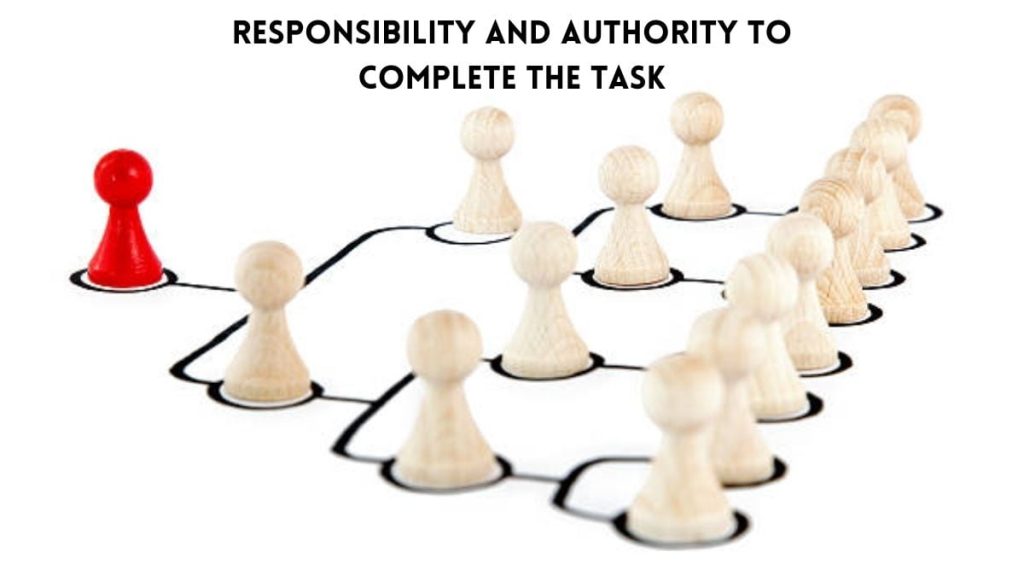Highly successful leaders require a wide range of interpersonal skills to lead and motivate their teams. When hiring for leadership positions, they are looking for motivational qualities on the resume of a potential candidate. The development of these skills can aid you in advancing to the leadership position or improving within your current managerial post. We will list 10 of the most motivating leadership skills to help you grow your career.
What are the characteristics of motivational leadership?
Leadership skills that motivate are traits leaders can employ to motivate and inspire the team members they work with to be successful. Leaders can utilize their motivational skills to support their colleagues:
- Improve team morale: Motivation can boost team satisfaction.
- Create relationships: Teams with a strong sense of community typically feel more connected and active.
- Enhance productivity: Motivational leaders could inspire their staff to be more efficient and productive.
- Make sure you have a positive culture at work. A strong motivational system will make your workplace more enjoyable for you and your coworkers.
The following motivational qualities are crucial to your career as a leader:
1. Empathy
Empathy can comprehend and feel the emotions of another. This ability can aid leaders in communicating with their team members and creating more trust, increasing motivation.
It is possible to show compassion for your team members by employing one of these strategies:
Ask questions. You can ask your colleagues questions regarding their hobbies or interests to build relationships. Begin conversations with friends. You might want to consider joining in on informal conversations, like in the break room at work. This will help you understand more about team members and their personality traits.

Celebrate personal occasions. Birthday celebrations or baby showers can boost morale and empathy in the workplace. Improve the ergonomics of your office. A comfortable and secure workplace can help employees feel more productive.
Start a voluntary wellness program. It is possible to show you how much you care about your team’s health by organizing optional wellness activities such as team outings and fitness sessions.
2. Positivity
Positivity is the capacity to see the positive in any situation. A leader who has positive attitudes can improve the mood of their team. You can become an optimistic leader by recognizing obstacles as learning opportunities. If obstacles confront your employee, help the employee to develop while remaining optimistic. Use positive language in your discussions about problems or conflicts. If your team members have succeeded, encourage them by giving them cheers and praise.
3. Reliability
Reliability is the ability of others to be sure that you will deliver regular outcomes. A reliable leader will always provide support and appreciation to those in their teams. Showing your team members that you appreciate your time and effort will inspire them to be more productive. You can set the example and show your employees how trustworthy you are. Be punctual and provide your team with ample time to notify them of any changes so that they can be respectful of their time. In planning your meetings, you should consider the schedule and keep the conversations short.
4. Goal setting
A clear and clear purpose can inspire people. When you establish specific goals for every project, you can encourage your team. Think about setting goals for your group and personal goals for performance. If you can, include information and deadlines that will make your team accountable.

It is possible to track and reward goals to help increase motivation. Certain leaders employ posters or a tally board to acknowledge goals, while some prefer private acknowledgment, such as a gift or customized card. There are different preferences for motivation, and knowing the preferences of your team members can assist you in planning a system of tracking that can motivate them.
5. Persistence
Persistence means the capability to persevere over obstacles and achieve achievement. Your team members will see that you are a hard worker can encourage them to follow suit. You can set an example by logging your own goals and working hard to meet them. You can encourage employees’ perseverance by focusing on growth. Also, you can provide other books, sources, and professional learning opportunities to promote continued learning.
6. Team building
Creating an atmosphere of collaboration and teamwork is a key ability for any leader. Groups that are connected tend to work more effectively. You can encourage your team’s teamwork by planning activities and other events. It is also possible to create goals for the team to encourage collaboration. Think about celebrating team successes by having parties or other incentive rewards.
7. Communication Skills
Effective leaders communicate effectively to inspire employees. As a leader, think about these suggestions to improve your motivational skills:
- Confidently and communicate. You can motivate an entire group by choosing your words with care and speaking with confidence.
- Utilize storytelling. Storytelling is a powerful motivator. Using personal or famous examples to motivate your team members when delivering a speech or setting objectives is possible. Experiments from the real world will help you prove your point and inspire you.

- Learn to speak in public. Before you speak to your group, take a moment to practice several times until you feel comfortable and prepared.
- Set goals. Make sure you communicate effectively by setting the goals for your conversations. Set a goal for each formal correspondence and formal conversation.
- Maintain positive body language. You can inspire your team members by displaying your positive attitude. Make sure you keep eye contact and straighten your posture to show that you’re an experienced leader.
8. Effective feedback
Giving focused and constructive feedback is an essential part of being a motivated leader. Positive feedback can show a person where and how they can make improvements. It is possible to improve your skills in feedback by establishing an annual evaluation process. For instance, you could have a quarterly meeting with your team members and give feedback via a performance evaluation. Make the feedback as concrete as possible by giving clear steps for the next steps.
9. Active listening
Active listening refers to paying attention to an individual speaker and fully grasping the message they are expressing before responding. Employees are often more enthusiastic when they believe their managers listen to and comprehend what they say. As an employee, you can increase your active listening abilities by nodding, keeping eye contact, or asking questions.
Additionally, think about making more room for team members to discuss their ideas. Ask open-ended questions to encourage discussion during meetings or review sessions. Also, you can request regularly-scheduled feedback from your staff to show that you are interested in the things they share. You can, for instance, create an anonymous survey in which employees can submit their opinions or suggestions. Find areas that you could make improvements to show you are listening and respecting the opinions of your team.
10. Delegation
Delegation is the process of dividing tasks. If for instance, you have a big task, you can split it up into smaller sections and assign a person to finish each section. By delegating it, you can show your employees that you appreciate and trust that they will be able to do their job. They also have the responsibility and authority to complete the task at hand, which is very motivating.
Begin by looking over your team. Be aware of each person’s strengths and preferences, and then consider the strengths and preferences when dividing the tasks. For instance, if you have a member of your team who is a great writer, think about assigning the writing portion of the job to them.

11. Team player
A dependable leader will be aware that no one is above them. Instead, they’ll treat all their employees and employees equally and act as team members. Teamwork can spark innovative ideas, create multiple perspectives, and spur the development of new ideas. Teamwork fosters synergy, improves productivity, and helps employees be more engaged.
Leaders should be supportive of team members throughout the day. That means working effectively with all. Leaders can be great team members by seeking feedback, keeping the lines of communication open, and valuing others’ views. Be sure to be a role model; demonstrate and instruct those in your group on being successful.
12. Strategist
It is essential to think, act, and be influential as an executive. You must be able to make quick decisions while seeing the bigger perspective. Strategic leaders can share their responsibility, be honest about their information, and set up various testing pathways. They also allow gaining experience-based knowledge, making it safe to fail, and reflecting on their own mistakes. There are many ways to be more effective as a strategic leader are:
- Establish a planning committee
- Develop a risk-management plan to manage risk
- Communicate effectively
- Implement your strategy with a mentor and coach
Mentorship is crucial to the success of a business. Mentoring in business leads to greater knowledge and information, better problem-solving skills, and more confidence. Effective mentorship also improves the performance of businesses, encourages diversification, and improves the retention of talented individuals.
Leaders can be successful coaches and mentors by creating an environment of learning within their companies. Creating a secure environment where everyone feels valued and accepted is vitally important.
But, mentoring doesn’t necessarily require formality. Leaders can guide others by passing on knowledge, tips, or information over informal conversations. Be aware that your goal should inspire employees to develop, learn and develop their skills. This will enable them to do better and become more successful soon.
